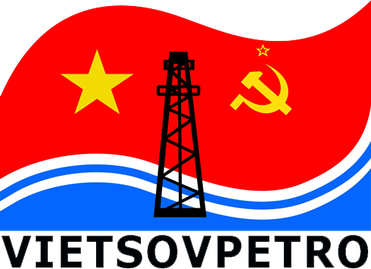Company Directory - Abu Dhabi National Oil Company
Company Details - Abu Dhabi National Oil Company

Abu Dhabi National Oil Company
WebsiteAbu Dhabi, United Arab Emirates
The Abu Dhabi National Oil Company (ADNOC) is a state-owned oil company of the United Arab Emirates. It is responsible for the development and operation of oil and gas resources in Abu Dhabi and plays a crucial role in supporting the economic growth and diversification of the UAE. ADNOC engages in exploration, production, refining, and distribution of oil and natural gas, making it one of the largest oil companies in the world.
CCI Score
CCI Score: Abu Dhabi National Oil Company
-25.00
0.09%
Latest Event
ADNOC Secures Massive US Energy Investment Deal with Trump Endorsement
ADNOC CEO Sultan Al Jaber announced a plan to boost UAE energy investments in the US to $440bn by 2035 during a meeting with President Trump. The deal is part of a broader $1.4tn investment framework and involves shifting stakes in key US energy projects to ADNOC’s international investment arm, XRG.
Take Action
So what can you do? It's time to make tough choices. Where will you cast your vote?
- Shop Alternatives
SEE ALL - Use Your Voice
OTHER TOOLS - Investigate
- Share the Score
SUPPORT CCI
ACCOMPLICE
Abu Dhabi National Oil Company is currently rated as an Accomplice.
Latest Events
- MAY162025
ADNOC CEO Sultan Al Jaber announced a plan to boost UAE energy investments in the US to $440bn by 2035 during a meeting with President Trump. The deal is part of a broader $1.4tn investment framework and involves shifting stakes in key US energy projects to ADNOC’s international investment arm, XRG.
- JUN052024
An investigation by Global Witness reveals that ADNOC, under CEO Sultan Al Jaber, utilized his presidency at COP28 to pursue nearly $100 billion in oil, gas, and petrochemical deals. The report details how this move potentially exploited the global climate talks for advancing fossil fuel interests, undermining genuine efforts to combat climate change and raising concerns of conflict of interest.
-70
Executive Political Engagement
May 16
ADNOC's CEO, while serving as COP28 President, actively used his influential position to secure an unprecedented volume of fossil fuel deals. This reflects a misuse of political authority for business gain that can undermine efforts to combat climate change, aligning with authoritarian and fossil fuel-centric policies.
New investigation reveals how the COP28 President used role to pursue oil and gas deals
- DEC052023
The article highlights concerns over the appointment of ADNOC's CEO as COP28 president, interpreting this move as part of broader fossil fuel industry tactics that aim to manipulate democratic processes and secure favorable oil and gas deals.
-80
Executive Political Engagement
May 16
The ADNOC CEO’s role as COP28 president is viewed as a strategic move to capitalize on political influence. This appointment leverages public authority to further the fossil fuel industry's self-interest, undermining democratic accountability and contributing to regulatory capture. Such executive political engagement aligns with authoritarian tactics by prioritizing state-backed corporate interests over transparent, public-focused governance.
These Fossil Fuel Industry Tactics Are Fueling Democratic Backsliding
- DEC032023
Human Rights Watch reported that ADNOC, the UAE’s state‐owned oil company, has increased its production capacity from four million to five million barrels per day despite growing concerns over climate change and associated labor abuses affecting migrant workers in the region.
-60
Business Practices and Ethical Responsibility
May 16
ADNOC’s decision to expand its fossil fuel production highlights a prioritization of profit and growth over ethical responsibility. This expansion, undertaken despite mounting evidence linking fossil fuel reliance to exacerbated climate change and disregard for migrant worker rights, reflects poor business practices and ethical responsibility.
Questions and Answers: Migrant Worker Abuses in the UAE and COP28
-40
Economic and Structural Influence
May 16
The production capacity increase contributes to bolstering state revenues that may be used to support authoritarian policies and structural systems that perpetuate labor abuses and environmental neglect. This deepens the economic and structural influence that enables repressive state practices.
Questions and Answers: Migrant Worker Abuses in the UAE and COP28
- NOV292023
The article reports that Sultan Al Jaber, CEO of ADNOC and COP28 president, used his influential position to lobby for oil and gas projects during the conference, promoting his company's fossil fuel interests over a neutral, collaborative climate agenda. This move has raised concerns about the fusion of corporate and political power undermining the integrity of climate negotiations.
-70
Executive Political Engagement
May 16
Sultan Al Jaber’s dual role as ADNOC CEO and COP28 president allowed him to leverage his political position to advance fossil fuel deals. This action, indicative of executive political engagement aimed at furthering oil interests rather than the public good, increases the risk of biased decision-making and underscores a problematic alignment between corporate agendas and public policy.
- OCT252023
The article details how former ADNOC executive Al Jaber leveraged his position and extensive PR and lobbying efforts—through firms like Edelman and GMMB—to influence the hosting decisions for climate-related summits and IRENA, raising concerns over manipulative political engagement and regulatory capture in service of state and corporate interests.
-60
Political Contributions and Lobbying Efforts
May 16
ADNOC’s strategy involved hiring high-profile lobbying and communications firms such as Edelman and GMMB to sway political outcomes related to IRENA and climate summit hosting. This direct engagement in political lobbying is viewed as subverting democratic processes and reinforcing authoritarian state interests.
Inside the campaign that put an oil boss in charge of a climate summit
-50
Executive Political Engagement
May 16
The appointment of Al Jaber, who orchestrated a multifaceted campaign blending executive leadership with intensive political engagement, illustrates a top-down influence that prioritizes corporate state interests over genuine democratic or environmental commitments.
Inside the campaign that put an oil boss in charge of a climate summit
-40
Media Influence and Propaganda
May 16
The campaign's heavy reliance on media and public relations tactics—including promotional videos and tailored messaging—was aimed at shaping public opinion and influencing key decision-makers, thereby undermining transparency and accountability.
Inside the campaign that put an oil boss in charge of a climate summit
-30
Regulatory Capture
May 16
The use of substantial funds to secure favorable regulatory and decision-making environments—such as influencing IRENA's hosting decision—reflects tactics of regulatory capture that consolidate state and corporate power at the expense of democratic oversight.
Inside the campaign that put an oil boss in charge of a climate summit
- MAY312023
On May 31, 2023, ADNOC signed agreements with over 60 companies to locally manufacture critical non-oil products. The deals aim to accelerate an AED70 billion procurement pipeline ahead of schedule to 2027, inject AED2.84 billion in industrial investments into the UAE economy, and potentially create up to 21,500 jobs by 2031, thereby strengthening the local supply chain and supporting domestic manufacturing.
+70
Supply Chain Ethics
May 16
The local manufacturing agreements enhance supply chain resilience and promote ethical sourcing by fostering domestic production. This reduces dependency on foreign supply chains, supports local industry, and encourages improved labor standards by integrating local manufacturers into ADNOC’s procurement strategy.
ADNOC signs local manufacturing contracts with over 60 companies to strengthen supply chain
+60
Labor Relations and Human Rights Practices
May 16
The agreements are projected to create up to 21,500 jobs by 2031 and support long-term domestic manufacturing opportunities. This development is positive from a labor rights perspective as it promises economic uplift for local workers and strengthens the domestic industrial base.
ADNOC signs local manufacturing contracts with over 60 companies to strengthen supply chain
- MAY312023
ADNOC signed agreements with more than 60 companies during the Make it in the Emirates Forum to locally manufacture critical non-oil products. The agreements accelerate a target of AED70 billion in local procurement, inject AED2.84 billion into the UAE economy, and are expected to create up to 21,500 jobs by 2031. This move supports supply chain resilience and domestic economic growth as part of broader decarbonization and industrial initiatives.
+50
Supply Chain Ethics
May 16
By partnering with over 60 companies to localize the manufacturing of critical non-oil products, ADNOC is reinforcing its supply chain and supporting local industry. This approach enhances domestic economic benefits, job creation, and industrial resilience, aligning with ethical supply chain practices.
+40
Economic Collaboration
May 16
The agreements not only promote supply chain localization but also foster economic collaboration by channeling significant industrial investments back into the UAE economy. This accelerates ADNOC's domestic manufacturing targets and builds structural resilience in the industrial sector.
- MAY312023
On May 31, 2023, ADNOC announced at the Make it in the Emirates Forum new agreements with over 60 UAE-based and international companies to locally manufacture critical non-oil products. The deal, part of a broader initiative that includes accelerating a Dh70 billion procurement target and creating up to 21,500 jobs by 2031, also included a strategic water supply project with Taqa to support sustainable onshore operations.
+50
Economic and Structural Influence
May 16
The agreements are designed to localize ADNOC's supply chain, boost domestic industrial capacity, and reinforce economic resilience in the UAE. This structural investment supports long‐term economic growth and job creation, aligning with efforts to empower local industries and labor, thereby acting in a positive, anti-authoritarian economic framework.
+60
Labor Relations and Human Rights Practices
May 16
The newly signed agreements are projected to create up to 21,500 jobs by 2031, representing a significant positive impact on labor conditions and workers' rights in the UAE. This initiative promotes fair labor practices and contributes to empowering local workers, which is a key anti-fascist economic priority.
- APR052023
An investigation reveals that ADNOC's gas expansion projects, including the development of a $548 million pipeline at Lower Zakum, expose migrant workers to hazardous conditions. Concerns include inadequate safety measures, lack of transparent reporting on work-related accidents and deaths, and exploitative labor practices evidenced by low wages and questionable accident investigations.
-80
Labor Relations and Human Rights Practices
May 16
The article details significant issues in labor relations and human rights practices at ADNOC. Hazardous working conditions, low wages, and a lack of transparent investigation into work-related fatalities indicate exploitative practices that put vulnerable migrant workers at severe risk. These factors contribute to a strongly negative score in the Labor Relations and Human Rights Practices category.
Migrant workers face risks building the UAE's gas expansion plans
- JAN152023
In January 2023, reports indicated that ADNOC CEO Sultan Al Jaber was anticipated to be appointed as COP28 president. This move has raised alarm among environmental activists and civil society groups, who warn that retaining his dual role at ADNOC and as COP28 president creates a significant conflict of interest and risks the independent integrity of international climate negotiations. ADNOC did not respond to requests for comment.
-60
Executive Political Engagement
May 16
The appointment of Sultan Al Jaber, a key figure in a major fossil fuel company, to the presidency of COP28 is considered a troubling example of executive political engagement that risks undermining the impartiality of international climate negotiations. This dual role exemplifies a conflict of interest, potentially enabling undue fossil fuel industry influence over public policy in a manner that can be compared to authoritarian capture.
-70
Regulatory Capture
May 16
This appointment is viewed as a potential act of regulatory capture, where the COP28 process could be commandeered by fossil fuel interests. The resulting imbalance raises concerns about the undue influence of authoritarian corporate power, undermining efforts to address the climate crisis effectively.
Alternatives

Hanoi, Vietnam
1.78
Stavanger, Norway
16.48

Rome, Italy
7.73

Houston, United States
-5.82

Australia
40.85

Canada
0.00

Calgary, Canada
-2.72

Los Angeles, United States
-5.10

Calgary, Canada
-6.33
Canada
-13.39
Industries
- 211120
- Crude Petroleum Extraction
- 211130
- Natural Gas Extraction
- 324110
- Petroleum Refineries
- 486110
- Pipeline Transportation of Crude Oil
- 486210
- Pipeline Transportation of Natural Gas